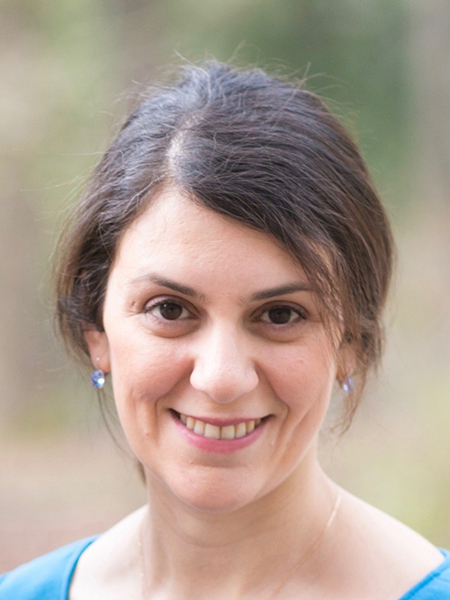 The Allen School is thrilled to officially welcome professor Hannaneh Hajishirzi, whose research and teaching spans artificial intelligence, natural language processing, and machine learning, to the full-time faculty. Many members of the Allen School community will be familiar with Hajishirzi and her work from her time as a research professor in Electrical Engineering and an adjunct professor in Computer Science & Engineering at the University of Washington.
The Allen School is thrilled to officially welcome professor Hannaneh Hajishirzi, whose research and teaching spans artificial intelligence, natural language processing, and machine learning, to the full-time faculty. Many members of the Allen School community will be familiar with Hajishirzi and her work from her time as a research professor in Electrical Engineering and an adjunct professor in Computer Science & Engineering at the University of Washington.
The goal of Hajishirzi’s research is the development of robust, scalable systems that can understand, interpret, and reason about data drawn from multiple sources. To that end, she designs algorithms for question answering, semantic understanding, and information extraction from textual and visual data, including news articles, web data, technical documents, and conversations. By leveraging two complementary developments in the field of AI — symbolic representation and end-to-end deep learning neural models — Hajishirzi aims to dramatically improve output while reducing latency and computational costs for a range of applications, including search engines, education, media, and financial services.
Working with colleagues at UW and the Allen Institute for Artificial Intelligence, Hajishirzi led the development of GeoS, the first automated system capable of solving geometry word problems that uses symbolic representations to understand and interpret natural language text and corresponding diagrams. She also led the development of Bi-Directional Attention Flow for Machine Comprehension (BiDAF) in collaboration with AI2 and UW researchers. BiDAF is a novel end-to-end neural question-answering system for textual paragraphs and diagrams that outperformed all previous QA systems tested on the Stanford Question Answering Dataset. Other projects include the development of systems that can automatically solve and generate algebra word problems; Skim-RNN, an efficient recurrent neural network that determines the importance of input tokens to downstream tasks and “skims” those that are unimportant, similar in concept to human speed-reading; Query Reduction Network (QRN), a variant on RNNs that is capable of multi-hop reasoning; and a new data-driven approach for extracting knowledge about life events using online photo albums — to name only a few.
Hajishirzi first arrived at UW as a research scientist in 2012. Since joining the faculty three years ago, she has advised several Allen School Ph.D. students and has taught or guest-lectured in a variety of introductory and advanced courses in artificial intelligence, statistical machine learning, natural language processing, digital signal processing, and grounded language acquisition and vision.
Hajishirzi previously held postdoctoral research positions at Carnegie Mellon University and Disney Research. She has earned numerous awards for her research, including an Allen Distinguished Investigator Award, a Google Faculty Research Award, a Bloomberg Data Science Award, an Amazon Research Award, and a SIGDIAL Best Paper Award. Hajishirzi earned a bachelor’s degree in Computer Engineering from Sharif University of Technology and a Ph.D. in Computer Science from the University of Illinois at Urbana-Champaign.
Welcome, Hanna!

